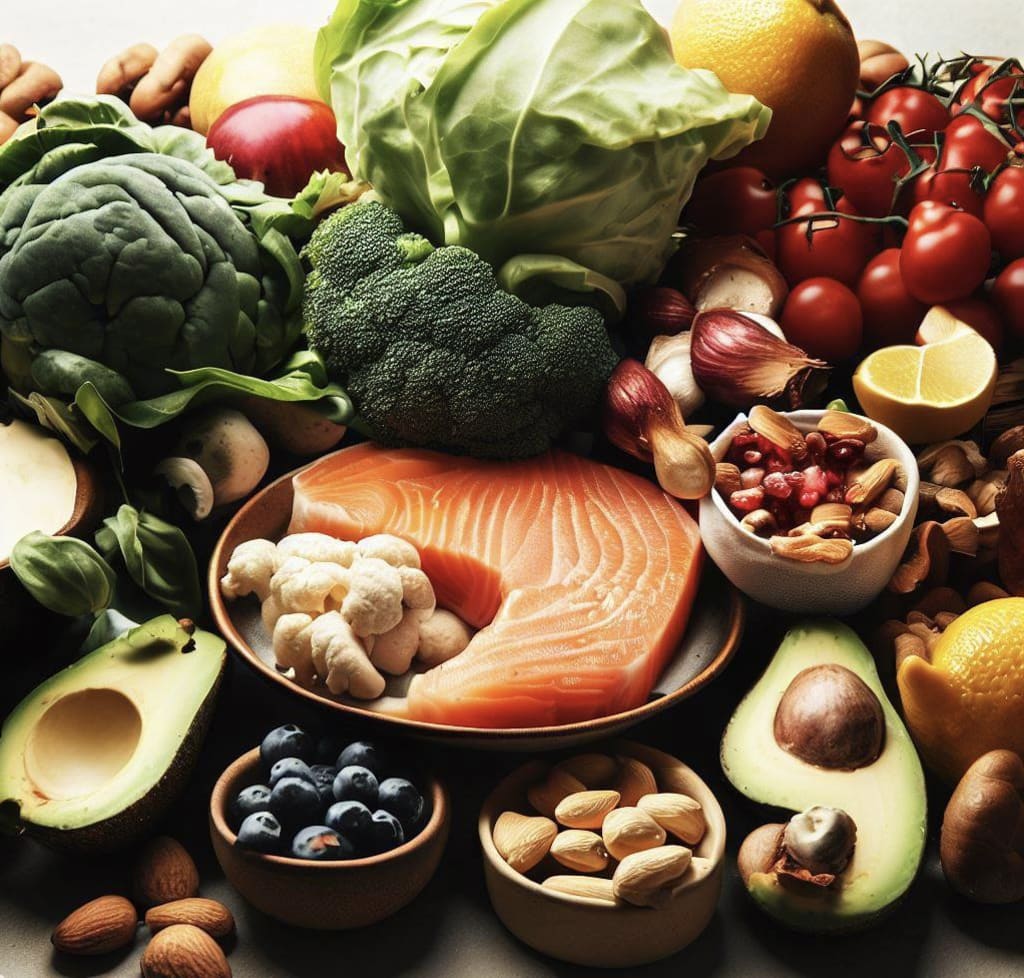The Anti-Inflammatory Diet: Foods That Fight Inflammation
Unlocking the Power of Food: The Anti-Inflammatory Diet That's Taking the World by Storm!

Inflammation is a natural response of the immune system to protect the body from injury and infection. However, chronic inflammation can contribute to various health problems, including heart disease, diabetes, and certain types of cancer. The good news is that adopting an anti-inflammatory diet can help mitigate the effects of inflammation and promote overall well-being. By incorporating specific foods into our daily meals, we can harness their anti-inflammatory properties and support a healthier lifestyle.
Understanding Inflammation
Before delving into the anti-inflammatory diet, it is important to comprehend the concept of inflammation. Inflammation is the body's response to injury, infection, or irritation, characterized by symptoms such as redness, swelling, pain, and heat. It is a complex process involving various immune cells, signaling molecules, and biochemical pathways.
While acute inflammation is essential for healing and protection, chronic inflammation can have detrimental effects on the body. It is linked to a range of conditions, including rheumatoid arthritis, asthma, inflammatory bowel disease, and cardiovascular diseases. Lifestyle factors such as poor diet, stress, sedentary behavior, and obesity can contribute to chronic inflammation.
The Anti-Inflammatory Diet
The anti-inflammatory diet focuses on incorporating foods that possess anti-inflammatory properties while avoiding or reducing the intake of pro-inflammatory foods. This dietary approach emphasizes the consumption of whole, nutrient-rich foods, promoting overall health and reducing the risk of chronic diseases.
Colorful fruits and vegetables are abundant in antioxidants and phytochemicals that help combat inflammation. Berries, such as blueberries, strawberries, and cherries, are particularly rich in antioxidants. Leafy greens like spinach, kale, and collard greens provide essential vitamins, minerals, and fiber. Including a variety of fruits and vegetables in the diet helps diversify the nutrient intake and provides a wide range of anti-inflammatory compounds.
Omega-3 fatty acids are renowned for their anti-inflammatory properties. They are found in fatty fish such as salmon, mackerel, and sardines. These healthy fats help reduce inflammation by inhibiting the production of pro-inflammatory molecules. For individuals who do not consume fish, plant-based sources of omega-3s include flaxseeds, chia seeds, and walnuts.
Whole grains like brown rice, quinoa, and whole wheat contain high amounts of fiber, which aids in maintaining a healthy gut and reducing inflammation. Fiber also promotes the growth of beneficial gut bacteria, which play a crucial role in immune function and inflammation regulation.
While saturated and trans fats found in processed foods and fried items can promote inflammation, incorporating healthy fats into the diet can have the opposite effect. Extra virgin olive oil, avocados, and nuts, such as almonds and pistachios, are excellent sources of monounsaturated fats and have been associated with reduced inflammation markers.
Many spices and herbs possess potent anti-inflammatory properties. Turmeric, for instance, contains curcumin, a compound with strong anti-inflammatory effects. Ginger, garlic, cinnamon, and rosemary are other examples of spices and herbs that can help reduce inflammation when incorporated into the diet.
Foods to Avoid or Limit
In addition to incorporating anti-inflammatory foods, it is equally important to limit or avoid foods that promote inflammation. Processed and refined foods, such as sugary snacks, sodas, white bread, and pastries, are known to contribute to chronic inflammation. Similarly, excessive consumption of red meat and processed meats has been linked to inflammation and an increased risk of certain diseases. By reducing the intake of these pro-inflammatory foods, individuals can further support an anti-inflammatory diet.
The anti-inflammatory diet is a powerful tool for promoting overall health and well-being. By incorporating a wide array of fruits, vegetables, whole grains, healthy fats, and spices, individuals can reduce chronic inflammation and lower their risk of developing various diseases. Additionally, adopting this dietary approach can lead to weight management, improved digestion, enhanced immune function, and increased energy levels. However, it is important to remember that no single diet can solve all health issues, and consulting with a healthcare professional or a registered dietitian is recommended for personalized dietary recommendations. With a commitment to making informed food choices, we can harness the potential of the anti-inflammatory diet to optimize our health and vitality.






Comments (1)
health is wealth